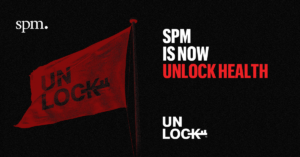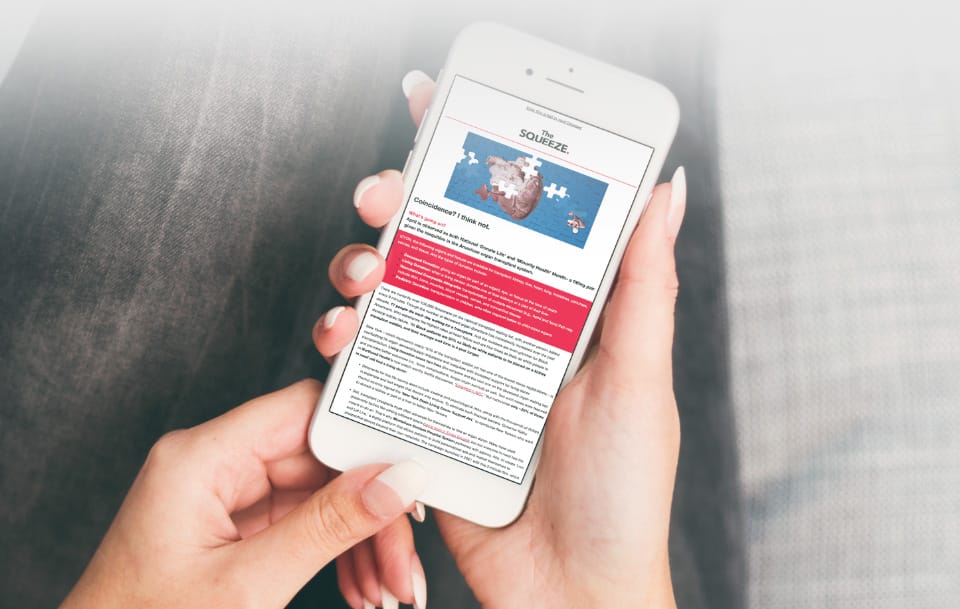Women's Health Month: Miss Misunderstood.
Easier said than done.

What’s going on?
Women’s Health Month's reminder to prioritize physical and mental health is easier said than done amid the everyday challenges women must navigate.
It’s no secret that women tend to put off their own health and wellness needs to meet the demands of work and/or family. Within our most recent SPM Consumer Compass survey, only 50% of women 45+ had a mammogram in the last year. This neglect is concerning, as it can lead to serious health problems that could otherwise be diminished or delayed.
Those who seek treatment for their health concerns can endure a discriminatory system that often misunderstands, misdiagnoses, and mistreats women. This is because medical studies have historically focused on diseases primarily affecting men, and how diseases that affect everyone impact men. It’s created inequality in the understanding of diseases that disproportionately and differently affect women today. For example, women are 7x more likely to be misdiagnosed while having a heart attack.
Women also face stigma and shame-related barriers to self-advocate. Social taboos around sexual health (e.g., that menstruation is considered ‘unhygienic’ or ‘gross’) can create an education gap and discourage women from speaking openly about their bodies. When women do seek help, they’re more likely to be dismissed and unbelieved due to stereotypes that women are ‘emotional’ or ‘dramatic.’ Endometriosis, a painful condition which affects 1 in 10 women, takes an average of 7 years to be diagnosed.
Women are quietly turning to Google when they’re left with more questions than answers about their bodies. Since 2004, 9 of the top 10 searches for “is it normal” have been related to the female experience (e.g., pregnancy, menstruation, and infants). With search interest currently at a record high in the U.S., two recent campaigns are seizing the moment:
SPM partnered with UChicago Medicine on a campaign to help women with pelvic floor disorders realize that they are common – but not normal – and curable. Nearly 24% of American women are affected with one or more pelvic floor disorders, and many incorrectly assume that they are an untreatable price to pay for having kids and/or aging.
Gyno-Canesbalance is a gel that treats bacterial vaginosis – which only 4% of women seek treatment for because they’re embarrassed to talk about it. Along with agency, LOLA MullenLowe, they commissioned a straight-shooting mermaid to talk about the main symptom of bacterial vaginosis, and why women shouldn’t be ashamed but should do something to treat it:
What's The Squeeze?
Simply telling women to prioritize their health is both ineffective and insensitive, but there’s clear opportunity to equip them with the knowledge they crave to self-validate and self-advocate.
We know we’re preaching to the choir when we say that healthcare needs to weed bias out of the system, and we’re hopeful of efforts underway to diversify the industry’s providers and research studies. Something else that can be done with more immediate impact is provider training on effective communication with patients to eradicate medical gaslighting: dismissing, downplaying or invalidating patients’ concerns and experiences.
Doing so can go a long way in building brand trust and selection. NRC reports that provider listening is the main driver of trust. And the SPM Consumer Compass reveals that when choosing a primary care physician, women place the greatest importance on a provider being compassionate and spending enough time with them.
Until the stigma is shattered, it’s our charge to find creative approaches to make women’s health experiences more comfortable to address. We can:
Continue to normalize the conversation around feminine health and hygiene in relatable, approachable ways.
Ensure the educational content women search for is available and accessible through content strategies customized to their health journey (and concerns throughout it). Doing so can maximize SEO efforts and make your brand the authoritative voice answering all those questions to Dr. Google.
Related Insights.

Dare to Dry?
A record 27% of Americans were highly likely to participate in Dry January and beverage brands crafted unique strategies to step up to the challenge.

Jingle All the Way Down Memory Lane.
This innovative initiative leveraged nostalgic advertising jingles to help Puerto Ricans with Alzheimer’s to remember their past.

Unlock Health Announces Acquisition of SPM Group, the Premier Network of Health and Healthcare Marketing Agencies
The acquisition positions Unlock Health as the leading growth marketing platform in the health services sector by size, scale, and breadth of capabilities. NASHVILLE, TENN.

Get The Squeeze.
Receive the latest trends and insights from all around the world of consumer advertising and healthcare marketing straight to your inbox. From new tools to noteworthy campaigns, we’ll break it down and give you all the juice.




